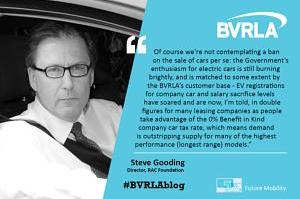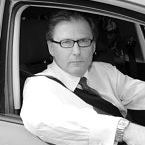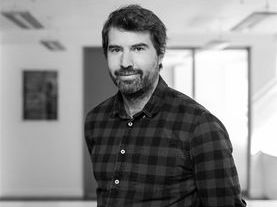Steve Gooding, Director at the RAC Foundation shares his thoughts on the future of cars and driving, whilst looking ahead to the end of internal combustion engine vehicles.

How are we feeling about cars? Not just BVRLA members but more generally?
I have been reading Allen Andrews’ entertaining book “the Mad Motorists”, which tells the tale of the Peking to Paris car race of 1907. In it he quotes one of the drivers, Auguste Pons, as saying “We came out here [to Peking] with the object of showing that the motor-car is the machine of the future, and nothing can stop its progress”, and arguably the next hundred years proved him right.
But how do we feel about cars right now?
The Government’s consultation on ending the sale of internal combustion engined cars and vans has not long closed, and to me that is feeling like the end of an era, even if the ban is still a decade away at the more ambitious end of the accelerated timescale advocated by the Climate Change Committee.
Of course we’re not contemplating a ban on the sale of cars per se: the Government’s enthusiasm for electric cars is still burning brightly, and is matched to some extent by the BVRLA’s customer base - EV registrations for company car and salary sacrifice levels have soared and are now, I’m told, in double figures for many leasing companies as people take advantage of the 0% Benefit in Kind company car tax rate, which means demand is outstripping supply for many of the highest performance (longest range) models.
Recently I found myself discussing the idea that adverts for the biggest, thirstiest SUVs should be banned. I’m not sure where the folks who buy these vehicles get their information from, but if they’ve decided they need one, I suspect it is more because they’ve seen them out on the road rather than being lured by an advertisement. And not all SUVs are that huge, but they do offer some features many people clearly like – more space for the kids, better suspension to cope with our potholed roads, comfortable upright seating and a commanding view of the road.
And then, of course, there has been the lockdown for coronavirus with the emergency reallocations of road space in favour of walking and cycling and some fairly loud statements about not wanting to emerge from the pandemic and return to our old congested and polluted ways. Will that really happen?
Because I also hear a great deal about how young people aren’t interested in driving any more, and while I note that driving licence holding amongst young people peaked around the turn of the millennium, since when it has indeed been in steady decline, data we’ve analysed suggests that over the past three years the downward trend may have started to reverse. 46% of young men (aged 17-24 years old) had a full driving licence at the end of 2019 compared with 43% at the end of 2016. For young women the percentage had risen from 41% to 44% over the same period.
That was pre-lockdown. Figures released recently by RAC Insurance show that through June - ahead of the restart of driving lessons on 4 July – sales of its learner driver insurance policy were up about a quarter year-on-year.
It remains to be seen in what way the pandemic impacts on our travel choices long-term. But in the short term, with social distancing in place and anxieties about public transport still massively impacting on patronage it’s not hard to understand why young people might be coming back to the car, not for any great love of motoring but for the simple utility of being able to access a wider range of job opportunities.
I am left feeling that as a society we have some very mixed feelings about the car, about cars in general, and about our own cars.
Based on the latest figures I could find from Eurostat - both the Germans and those heroes of the cycling revolution the Dutch have more cars per capita than Great Britain. But, and I speak in very broad generalisations here, they appear to have a greater tendency to choose what one of my colleagues termed ‘the right tool for the job’. There’s a big BMW in the garage for blasting down the autobahn and a bicycle propped next to it for popping to the local shops.
It can’t, as is sometimes claimed, be the weather that’s making the difference – I have been rained on in all three countries.
The Le Matin article that set the Peking to Paris challenge said, somewhat ambitiously: “What needs to be proved today is that as long as a man has a car he can do anything and go anywhere”, to which, perhaps, we might add “but just because you’ve bought an SUV doesn’t mean you can’t get on your bike or walk some of the time – you might even feel better for it”.
(NB the Peking-Paris race was won by Prince Scipione Borghese on 10 August 1907 in an Itala, which is now housed in the Museo Nazionale dell Automobile in Turin)





